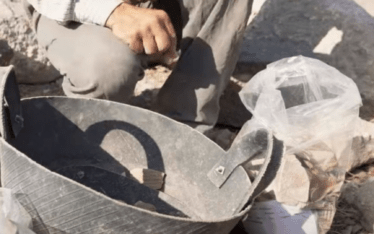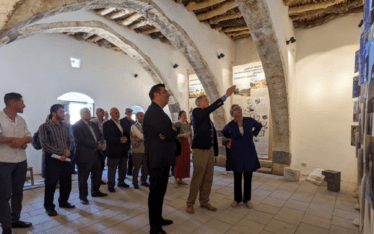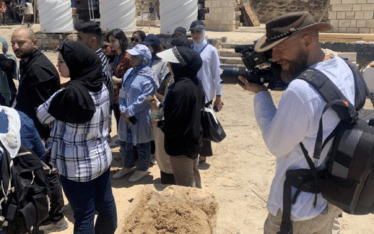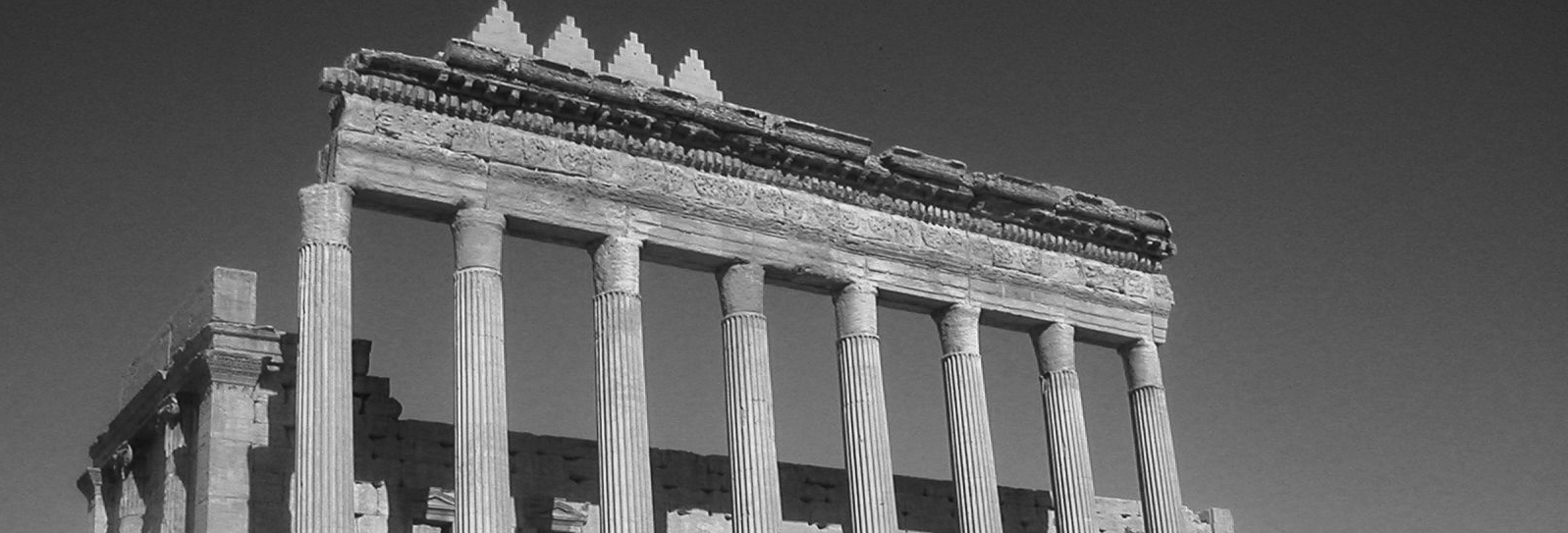
Foundation of ArcHerNet in the presence of the German Federal Foreign Minister Frank-Walter Steinmeier
- Home
- Foundation of ArcHerNet in the presence of the German Federal Foreign Minister Frank-Walter Steinmeier

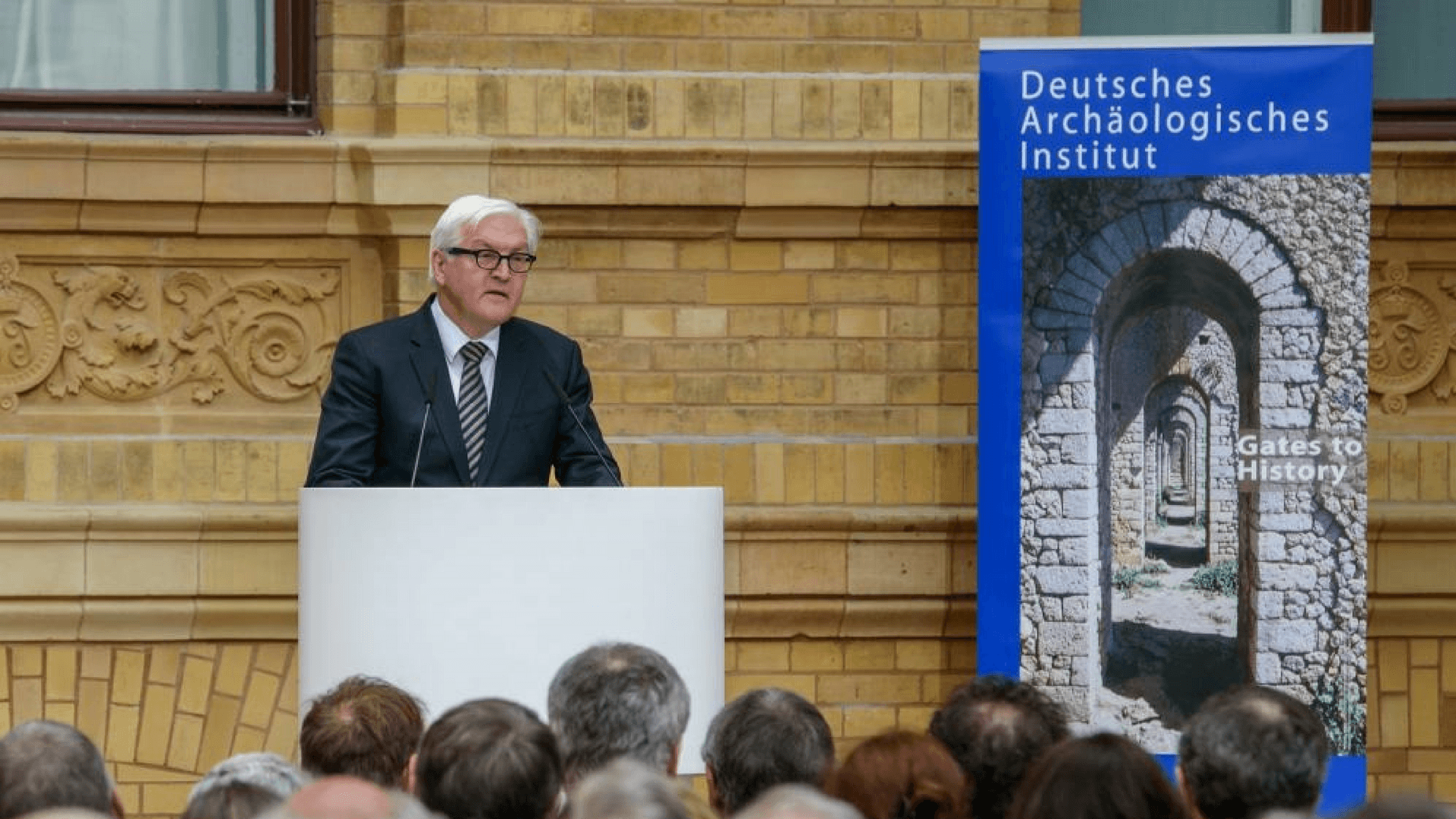
Start of the project “Stunde Null – A Future for the Time after the Crisis” and foundation of the Archaeological Heritage Network (ArcHerNet) – On 27th April 2016 the project “Stunde Null – A Future after the Crisis” was officially launched in the presence of the German Foreign Minister Frank-Walter Steinmeier.
This project originates from an initiative of the German Archaeological Institute (DAI)and is broadly based on cooperative institutions, the Archaeological Heritage Network. In his speech Minister Steinmeier stressed:
“The projects we support with the initiative “Stunde Null – A Future for the Time after the Crisis” are complex and multi-layered! As complex and multi-layered, some may say, as are the challenges, which will be linked to Syria’s reconstruction!”
The destruction of Syria’s and Iraq’s cultural heritage by the so-called Islamic State creates powerful images, deliberately staged in the media, for example the blasting of the temples in Palmyra. However, the fact should not be overlooked that since 2011 Syrian cities and large parts of its cultural heritage, which are part of the daily life of the people have been destroyed. Something else that is sometimes overlooked is how Syria can be reconstructed as a place for people to live after the end of the war.
As one of the most important archaeological research institutions worldwide the German Archaeological Institute initiated the project “Stunde Null – A Future for the Time after the Crisis” in order to pool expertise for this challenge and to create synergy effects.
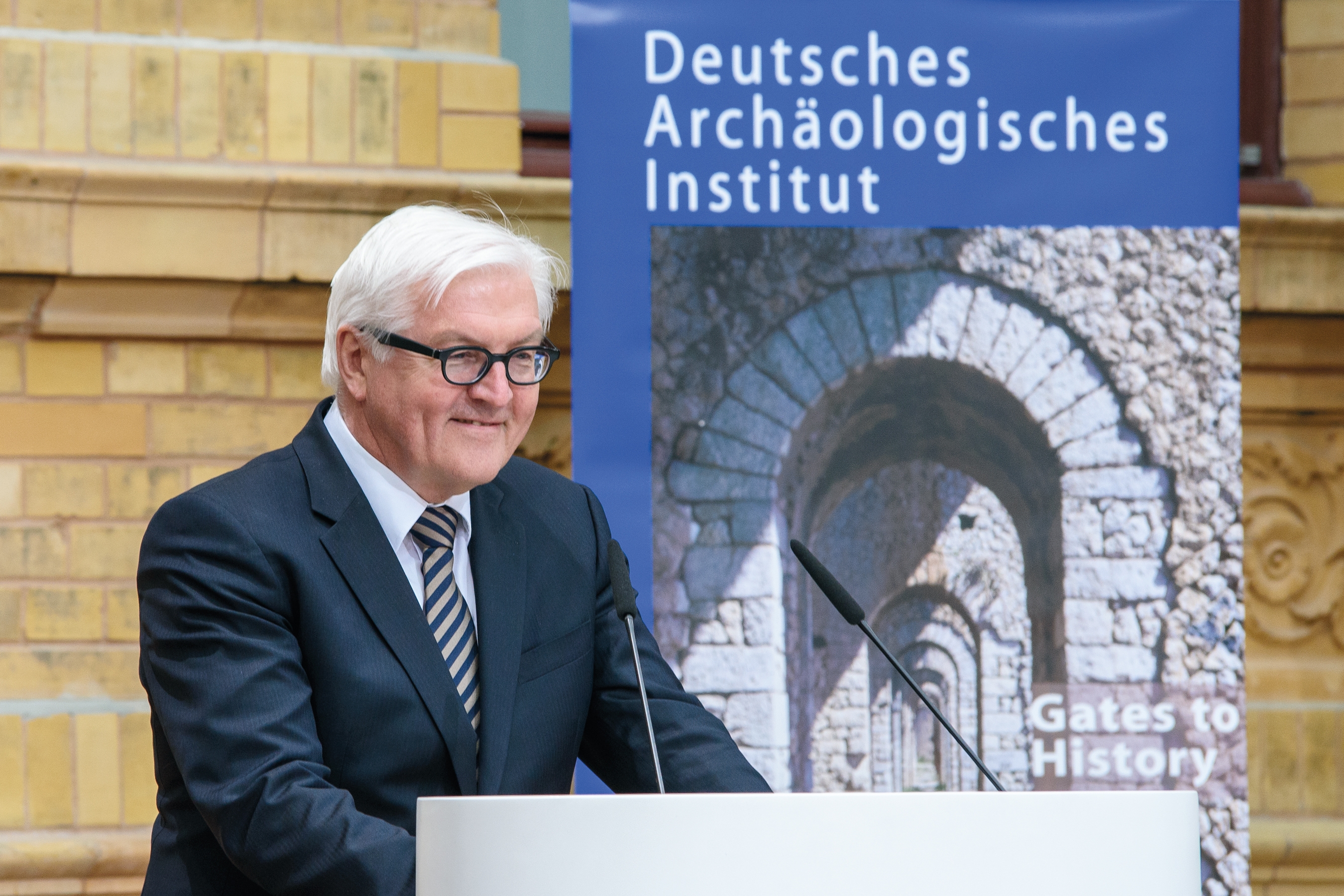
Federal Foreign Minister, Frank-Walter Steinmeier | DAI.
In her speech the president of the German Archaeological Institute describes the objectives of the network:“In Germany we have important expertise in this field. Because of the federal structures this expertise is, however, linked to the federal state as regards essential matters. Other institutions have a mission that is explicitly restricted to Germany. One objective of the Archaeological Heritage Network is to make this expertise visible and usable for concrete work abroad. Another objective is to learn from this and to reflect one’s own actions in a global mirroring.”
The temples of the ruined city of Palmyra are significant monuments of Syria’s cultural heritage. But during the reconstruction of Syria there will be a need to give priority to other cultural preservation measures. There is an urgent need to safeguard and to preserve Syrian cities including their antique monuments and historic city centres, because international investors have already removed debris and building structures with bulldozers and bought up entire city areas.
The primary issue therefore is not how to reconstruct the temples of Palmyra, but rather how to deal with the Aleppo bazaar, a UNESCO World Heritage site destroyed as early as 2012. Should the old city of Aleppo be preserved in its existing structure and partly rebuilt or should it be forgotten as being a scree deposit? Syrian experts will cooperate with German colleagues in order to carry out archaeological analyses in the Aleppo bazaar and an urban planning inventory in order to create target-oriented planning processes and lastly to be able to implement these.
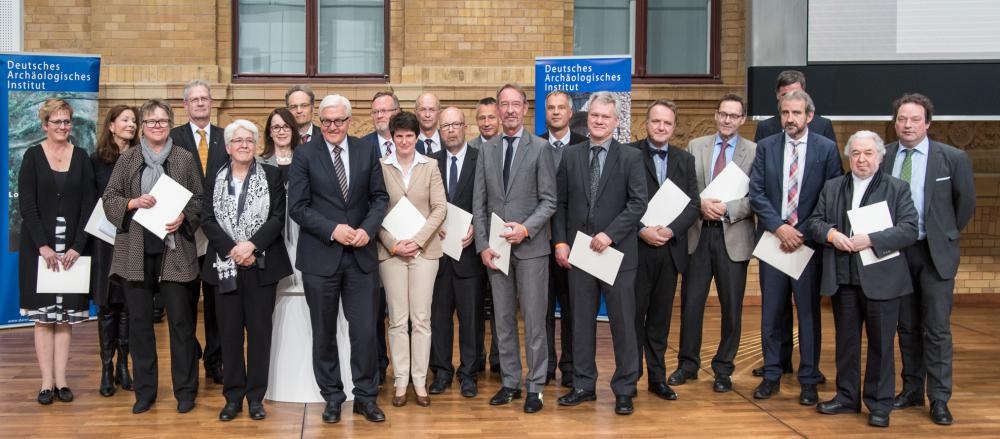
Founding members of the Archaeological Heritage Network | © DAI.
The training of Syrian architects, archaeologists, monument conservators, urban planners and more particularly craftsmen is at the heart of the “Stunde Null – A Future for the Time after the Crisis” project. An important part of education and training takes place in the neighbouring countries of Syria, which have received refugees. Graduates moreover can benefit from grants for masters courses in architectural conservation at the Helwan University in Cairo and at the German Jordanian University in Amman. In addition local workers are professionally educated for the preservation of significant monuments in Lebanon, Jordan, Iraq and Turkey and trained as specialists.
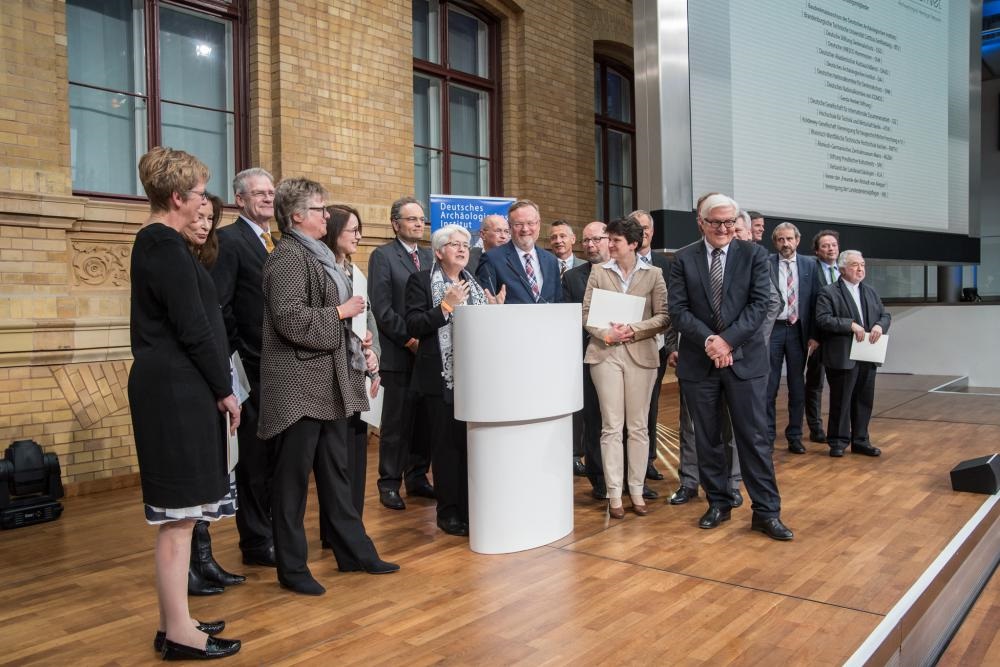
Foundation ceremony of the Archaeological Heritage Network | © DAI.
The project therefore brings together humanitarian aid by creating working places and by opening perspectives through education – not only in abstract teaching units but also in concrete planning and application during the reconstruction and consequently the preservation of significant monuments in the region. The network and the project are supported by the German Federal Foreign Office. The special “Flight and Migration” funds of the German Federal Foreign Office will contribute to the implementation of the project in the coming years. The Gerda Henkel Foundation provides numerous grants and finances projects in the context of the “Stunde Null – A Future for the Time after the Crisis” project. The president of the German Archaeological Institute thanked the Foreign Minister and the members of the German Federal Parliament for their personal engagement and their decisions, which made possible the funding and implementation of the “Stunde Null – A Future for the Time after the Crisis” project.
Germany has a wealth of expertise in the field of cultural preservation: at universities, at non-university research institutions and museums, in national and international associations and more particularly as regards the fields of archaeology and heritage conservation of the federal states. One objective of the network is to make this expertise visible and usable for concrete work abroad. A second objective is to learn from this and to reflect one’s own actions in a global mirroring. The first joint project of the network is entitled “Stunde Null – A Future for the Time after the Crisis”. The members of the network, however, do not restrict their cooperation to this issue but want to launch additional projects in the future. Therefore the network is conceived as an expandable network.
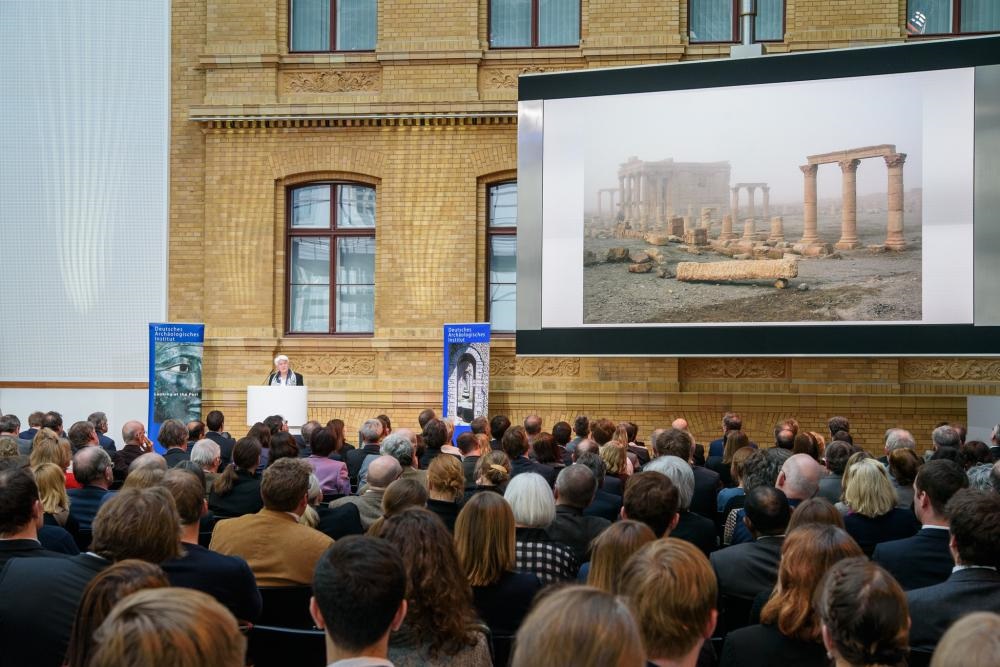
Speech of Prof. Friederike Fless on “Stunde Null – A Future for the Time after the Crisis | © DAI.
The founding members of the Archaeological Heritage Network are:


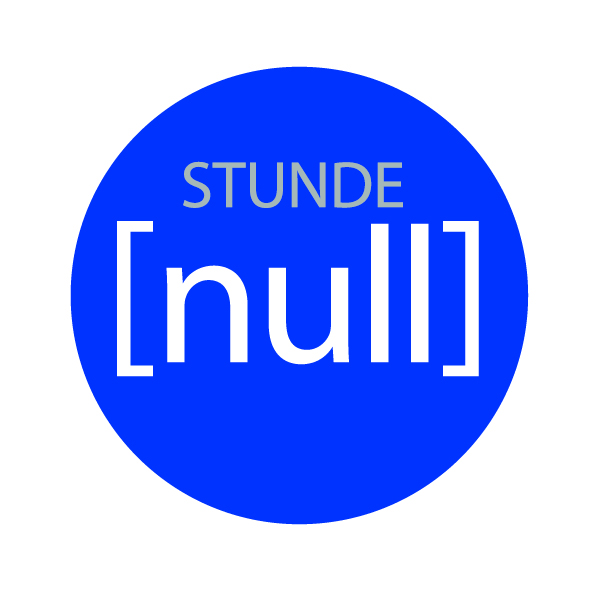
Title image: Opening speech of Foreign Minister Frank-Walter Steinmeier |© DAI.
Archaeological Heritage Network is made possible by many national and international partners. The Federal Foreign Office and the Gerda Henkel Foundation supports the network.
